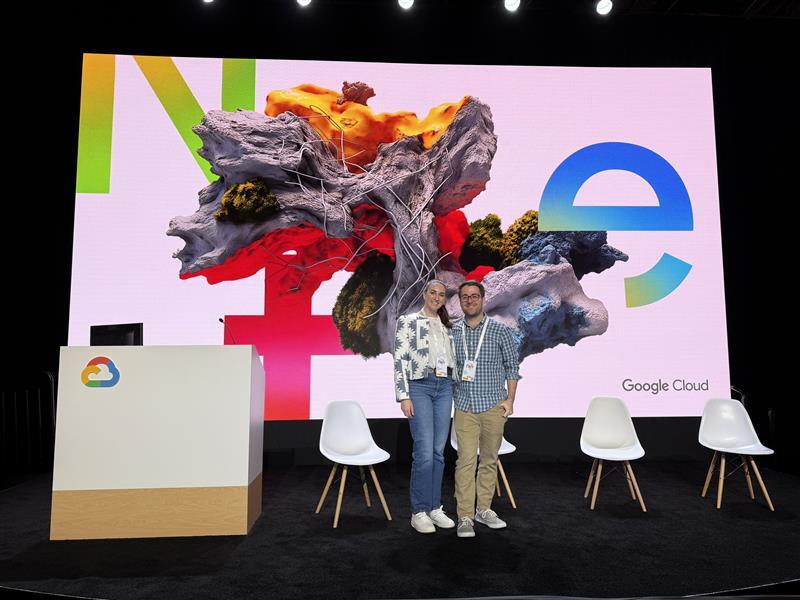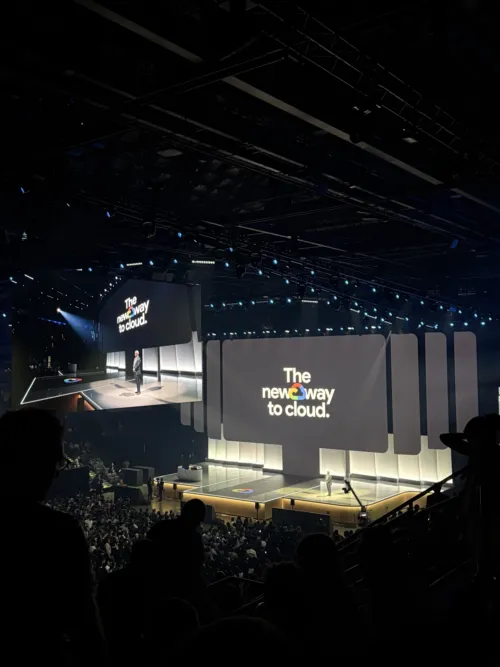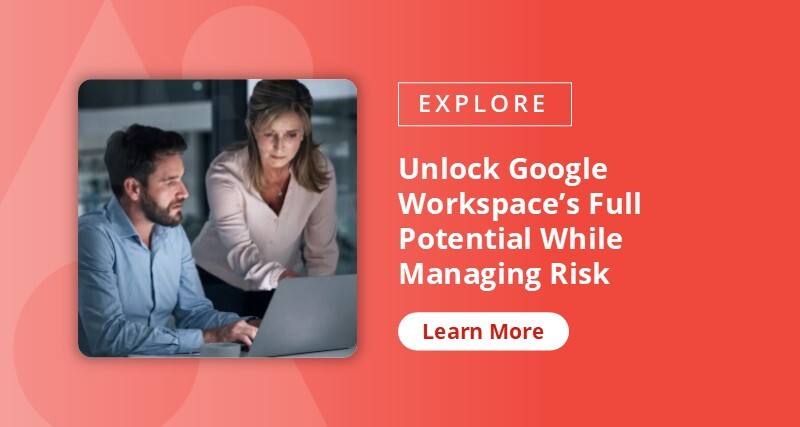AI, Agents, and the Next Era of Work: Top Takeaways You Need to Know from Google Cloud Next 2025


This year’s Google Cloud Next in Las Vegas wasn’t just a showcase of new products – it was a signal of where the enterprise cloud market is heading next. With major announcements like Agentspace, the release of Gemini 2.5, and a deepened focus on multi-cloud strategy, one thing became clear: AI isn't just influencing technology transformation. It’s redefining how organizations think about collaboration, cloud strategy, and data security at scale.
The conversations in Las Vegas didn’t just confirm trends as much as reframe them entirely. We’re not just in a cloud-first world anymore. We’re in a multi-cloud, AI-accelerated, outcome-driven one. Here I share a few key takeaways from the week and what an AI-powered future means for interoperability, security, and enterprise innovation.

1. Cloud strategy is shifting.
The first wave of cloud adoption was driven by necessity: organizations needed to break free from legacy systems packed with duplicate data and no centralized governance. Today, however, cloud strategy is becoming more nuanced. Organizations are taking a more deliberate, use-case driven approach to cloud services, seeking targeted ways to extract value fast and prove ROI even faster. And for many, that means adopting a multi-cloud strategy.
But more clouds doesn’t mean fewer problems. The average organization now uses 93 different applications, many with their own generative AI capabilities. This proliferation of tools has reintroduced the very problem cloud was meant to solve. Even in the cloud, fragmented systems are still making it difficult to unlock meaningful insights or move with agility. This means interoperability – between tools, platforms, and clouds – is becoming the new north star for enterprise IT teams.
2. AI assistants are evolving into AI agents.
The debut of Agentspace, Google Cloud’s fastest-growing product ever, is a prime example of how AI is evolving from a supportive assistant to a more proactive, outcome-focused collaborator. Its mission is to help organizations reach outcomes faster using AI agents that can interact with data across environments. This signals a shift toward what’s being called agentic transformation, where AI tools aren’t just assisting with automation, but partnering with them to take strategic, cross-system actions that help teams move faster and focus on higher-value work.
Driving much of this evolution are advancements in Vertex AI, which is enabling more sophisticated models and workflows across enterprise use cases. This paves the way for organizations to build AI agents with real utility – spanning everything from customer support to supply chain forecasting – while maintaining human oversight in strategic decision-making.
For CIOs and business leaders, this creates a critical balancing act between opportunity and complexity. How do you embrace speed and innovation without compromising security, compliance, or trust? It’s a big question, and one that will increasingly define enterprise AI strategies in the months ahead.
3. Generative AI is raising the ceiling – if you’re ready to reach it.
One of the biggest headlines from Google Cloud Next 2025 was the release of Gemini 2.5 models, which bring deep reasoning and capabilities for multi-agent systems into the Vertex AI platform. But the real takeaway isn’t just technical advancement, it’s that enterprise organizations now have unprecedented creative and operational potential at their fingertips.
To unlock it, however, they need more than just access to models. They need governance, data quality, and security frameworks that ensure these tools are used ethically, strategically, and at scale. For organizations hesitant to embrace genAI due to security or compliance concerns, this shift offers a new path forward – provided the right data and collaboration foundation is already in place.
4. AI-powered productivity is more cost-effective than you may think.
One of the most compelling takeaways from Google Cloud Next 2025 is just how accessible and cost-effective it is to get started with AI-powered productivity in the Google ecosystem. With the announcement that Gemini is now integrated directly into Google Workspace plans, the barrier to entry for AI rollout just became much lower, especially compared to Microsoft 365 Copilot, which is offered as a premium add-on. As global investment in genAI solutions is predicted to hit $644 billion in 2025, Google’s offering provides a cost-effective way to capitalize on this growth.

5. Security posture is the foundation for responsible AI.
Another theme that came through loud and clear: AI and security are no longer separate conversations. There’s a growing recognition that strong security posture built on data visibility, governance, and control is foundational to successful AI adoption. Without that foundation, the risk of misinformation, data exposure, or noncompliance only grows as organizations layer on new AI-powered workflows and tools.
This is especially true in multi-cloud environments, where data lives in (and moves between) more places than ever before. The organizations that get this right will be the ones that treat governance and security as enablers of innovation, not roadblocks.
6. Trust in AI starts with trust in your data ecosystem.
Whether it’s embedded in productivity tools or powering enterprise-wide decision-making, AI is only as effective as the systems that support it. From application sprawl to information silos, there’s a growing need to not just manage data, but to make it work together.
That means breaking down barriers between clouds, improving cross-platform visibility, and prioritizing secure access and lifecycle management from the start. It also means ensuring the quality of your data is high enough to support AI at scale – because trust in AI outcomes begins with trust in the data that fuels them. After all, organizations don’t just want innovation, they want outcomes. And that only happens when AI is deployed with clarity, interoperability, and trust.
Why These Shifts Matter
For organizations looking to work smarter and safer, this year’s announcements reinforced what many have already felt building: the future of enterprise tech is multi-cloud, AI-powered, and deeply interconnected. From Vertex AI’s advancements to the launch of Agentspace, Google is making bold moves to define what modern enterprise collaboration looks like.
At AvePoint, we’re thinking deeply about what that means for organizations navigating complexity in Google Workspace or multi-cloud environments. Success in this new landscape isn’t about chasing trends, but about building intentionally and aligning your people, platforms, and policies to ensure every new tool or technology fits into a cohesive, secure, and scalable strategy. The next wave of innovation isn’t coming – it's already here. The real challenge is how we use our data to drive meaningful, measurable success.


Ava Ragonese is a Product Marketing Manager at AvePoint, leading the GTM of data security solutions for Google Workspace and Cloud. She helps organizations focus on quality data and insights to drive innovation and how multi-cloud collaboration can impact businesses. Ava has a M.Eng. in Systems Analytics from Stevens Institute of Technology and enjoys bringing her technical acumen to complex business decisions such as AI adoption.


